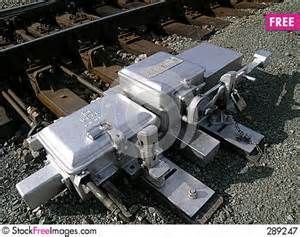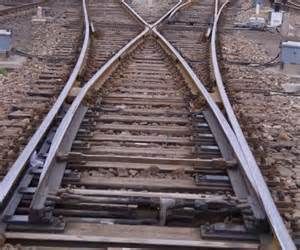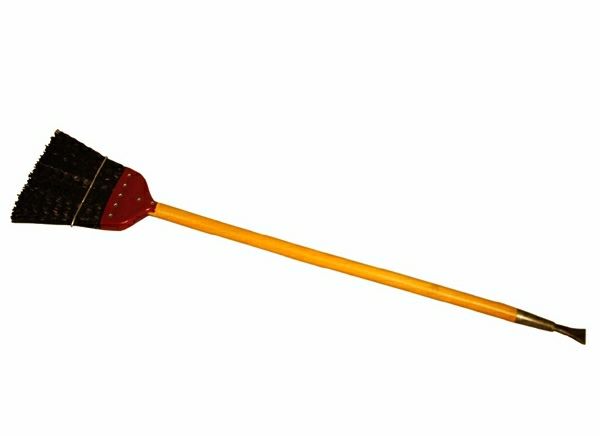Christmas Blizzard 1982 Part 1 in Tales of the Jointed Track
- Dec. 27, 2014, 6:38 a.m.
- |
- Public
This was a storm in magnitude I have never experienced before, nor again since I have lived here. Yeah, we’ve had some good storms since I moved back and retired, but this was “THE BIG ONE”.
December 24th 1982 1201 pm
I got called for a Comanche Coal train for the Public Service / XCEL Energy Utility at Pueblo, CO. Okay, for the people that say COULD THEY REALLY NAME THEM THAT!! I wasn’t consulted. In fact the Arapahoe, Cherokee, Pawnee and Ute names were around since I was a small kid for these utilities. So deal with it or move to another prose on here.
We were on duty for 1030 am, and it arrived about 1200 noon. The crews were changed, and a walk through of the head end power was made. A helper crew was on duty 15 minutes after our call. The temperature was about 45 to 50 degrees and sunny. There was a forecast of falling temperatures and snow for Christmas. I don’t think the weather people forecast the amount that was to fall.
I was about 30 years of age, at the time. Close to eight years running the mainline. Around Big Lift, it is about 400 pm still warm. Clouds are hugging the higher elevations, but the temperatures are still warm for this time of the year. I have my heavy coat if needed, the grip with a change of underwear, and pants. We’ll be out on rest or damned close to it, upon tie up in Pueblo.
We arrive at Pueblo and crew change with the C&S crew who will take it to the utility to unload. We tie up at 830 pm, get a 7-11 “dinner” head for the motel and register for a room.
Christmas Day 1982
The phone rings for a 0700 am call. A coal empty, but it is not the Comanche I brought down with our crew. We are on a “HOUSTON” coal empty, out of Spring, TX, heading back for a re-load at the one of the designated mines.
The clouds are low and it is cold. Twenty five degrees, no snow in Pueblo, but we will encounter the storm later on.
There are three coal empties called and the Comanche we brought down is leading the pack. Tommy ( Wacko ) Parker is on the first one. I am on the second and C.L. Gaer is on the last one. We all crew change and depart.
The sky is changing, off and on light snow, not a big deal. The radio crackles about Rio Grande Buttes.. “BN 5876 north Comanche Coal train”. “Comanche”. “DS La Junta, grab something at the Springs, if 7-11 is open proceed to Denver”. “Okay DS, thanks, out” “DS to BN 7891 North”. “7891 DS go ahead”. “Same instructions for you, and proceed into the siding at the Academy, until further instructed”. “Rodger, 7891 north out”. “DS to BN 5818 North”. “5818 Dispatcher”. ” Same for you at the Springs. Then run up to the North end till further instructed”. “Understood, stop at 7-11 and hold at the north end of Springs”.
We make our stop, and the snow is starting to fall and fall hard. By the time we get into the Academy siding, it is whiteout conditions and getting ugly. What we didn’t know, it was much worse at Denver. I had a programmable scanner, so I put Colorado Springs Police and the State Patrol in. Also El Paso County Sheriff, in the extra slots. I have the PBX’s in, and it is not looking good.
We leave Colorado Springs and the weather is really drastic. The heavy snow and wind, is whipping the snow into a drifting condition and the highways are becoming impassable. Flashing yellow at MP 73.3 around the Garden of the Gods Road overpass. A Yellow signal at MP 69.8 at the old Pikeview Mine location. South Academy might be red, but we need to be ready to stop. Coming around the curve, it is RED and we stop. We also see the problem. The points are gaped, due to the snow. The switch machine cannot lock in against the stock rail for the siding.
We tone up the DS, and let him know we are stopped at the south end Academy. We are told to place the switch in “hand” and try to line for the siding. We are also given authority to pass signal displaying stop from the South Switch at Academy from the main to the siding. After we get the switch lined up proper, the brakeman will place it back into power and relock the switch after one car length of movement is made. That will shunt the circuit and will not allow the switch to realign itself back to the mainline.

A CTC Switch machine that remotely operates the switches on each end of the siding by the dispatcher via microwave radio signals. You can see the switch lock. The pedal, after the lock is removed, allows operation of the POWER/HAND lever. You can see the offset lever just above and right of the lock. The square at the end is the actual switch handle where manual operation of the switch can be utilized.
The brakeman grabs a broom, and heads up. The switch is unlocked and the switch machine placed in hand. He starts sweeping, but it blows back in. I grab a broom and both of us go for it. We sweep about two to three feet away between and around the points, all the way to the heel block.

You can see the switch points. The switch point to the right is against the stock rail. The adjusting or bridle rods are between the points that aid in keeping spacing and points moving as one total unit during movement of the points. The heel blocks on each side are located where the points bolt onto the rails. You can see them between the rail joints and the stock rails. Where the wheels cross over the rails that is the switch frog. The two small pieces of rail either side of the frog are called guard rails.
The sweeping was made and any build up of snow and ice were chiseled away from the inside of the points and stock rail.
Typical switch broom with the chisel on the end.
We made the switch go over and properly fit against the stock rail. I took the brooms back and released the air. I called the caboose and eased up past the signal and the switch. The brakeman placed the lever back into power and placed the lock in. We flagged to the north end, where we sat for 10 more hours.
To be continued in Part 2
Last updated December 27, 2014




Loading comments...